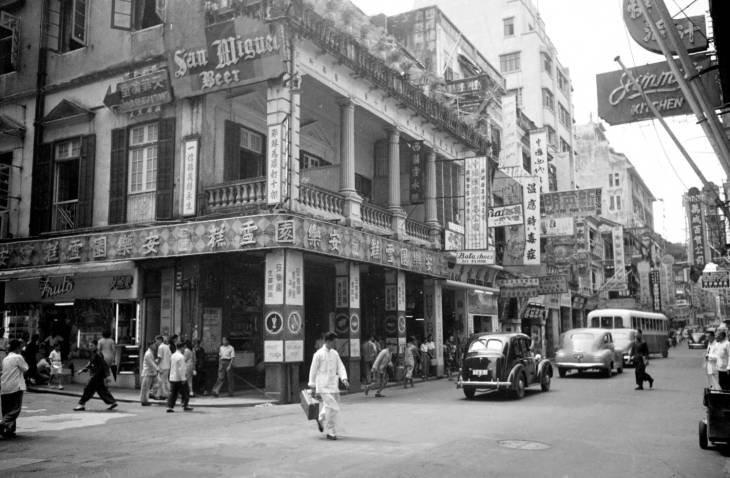Metro Manila today is a patchwork of bustling cities inundated with high-rise buildings, congested streets, and heavy traffic. It’s hard to believe that the Philippine capital was remarkably different just 60 years ago, when the country was adapting to a new way of life in the post-war era after years of colonial rule under Spain and the United States.
People shopped in stand-alone stores downtown, not the massive malls most flock to today, and kalesas (horse-drawn carriages) were still a mode of transportation alongside cars and jeepneys. Now, photos from this era provide a rare look into the Philippines of the past.
Videos by VICE
Harrison Forman, an American photojournalist, traveled extensively around Asia in the mid-20th century and documented people’s lives through unassuming portraits. Besides the Philippines, he also visited Singapore, Malaysia, and Vietnam. The following photos, taken from the Harrison Forman Collection at the University of Wisconsin-Milwaukee Libraries, offer a glimpse into what everyday life looked like in Manila in the 1950s and 1960s.



Built in 1909, the Manila Hotel is a five-star hotel rich with local history. For over a century, its grand interior has hosted foreign news offices, world leaders, and international celebrities.

As captured on a building facade in the black and white photograph, San Miguel Beer is a characteristic Filipino pale lager produced by San Miguel Brewery. With a history going back to 1890, the home-grown brewery boasts the oldest beer brand in Southeast Asia.

Fort Santiago is a citadel established by Spanish colonizers in the 16th century, in a walled area called Intramuros, in the then newly established city of Manila. Fort Santiago also served as key infrastructure under rotating colonial administrations over the years. It was used as a navy base by the British in the 18th century, became the U.S. Army headquarters in the late 19th century, and housed prisoners of war during the Japanese rule in World War II. Due to its rich historical significance, Fort Santiago is preserved as an important national landmark today.



Kalesas, or horse-drawn carriages, were widely used during the colonial era until the early 20th century. Their numbers declined with the growing popularity of motorized vehicles after World War II. These brightly-colored carriages still exist today, though they now mainly function as tourist attractions.


A portmanteau of the terms “jeep” (the military vehicle) and “jitney” (an American taxicab), the jeepney started appearing in the Philippines after World War II, to satisfy local public transportation needs. Having undergone several technical upgrades since their first incarnation, jeepneys remain a popular and distinctive form of transportation in modern-day Philippines.



One of the busiest roads in Metro Manila, Ayala Avenue traverses the Makati Central Business District.

Escolta was a major financial and commercial street that was once the “Fifth Avenue” of Manila. Many of the historic buildings were eventually abandoned or demolished, but some of those that remain have since been revived by local creatives.
More
From VICE
-

(Photo by Francesco Castaldo/Pacific Press/LightRocket via Getty Images) -

M Scott Brauer/Bloomberg via Getty Images -

Firefly Aerospace/YouTube -

Justin Paget / Getty Images

